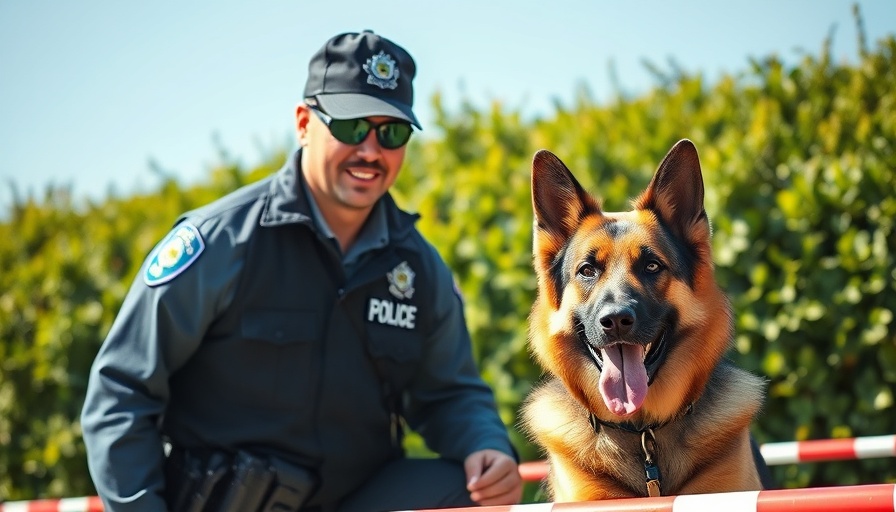
Tragedy strikes the Leicestershire policing family
PD Jura, a police dog with an extraordinary bond to PC Darren Sewell, died suddenly after a health emergency. The five-year-old dog was undergoing treatment for a suspected gastric torsion, which took a tragic turn. Emergency surgery was performed, but despite hopes for recovery, Jura's health deteriorated rapidly.
This shocking news has reverberated through the Leicestershire Police and beyond, as Jura was not just a police dog; he was a hero recognized for his exceptional service alongside his handler, PC Sewell. Their story resonates deeply, reflecting the hidden struggles faced within our community and highlighting the invaluable responsibilities placed on service animals.
A bond forged through adversity
Jura's journey began under heartbreaking circumstances. Paired with PC Sewell in 2020, their connection grew during a tumultuous time. PC Sewell was battling stage four cancer. The duo became inseparable, with training sessions providing a brief respite from the challenges of chemotherapy treatment. Jura was more than just a companion; he was a beacon of hope and motivation that illustrated the powerful bond between humans and animals.
As they went through training together, their shared challenges only tightened the bond they forged. The Thin Blue Paw Foundation recognized their incredible teamwork, awarding PC Sewell with a Special Recognition Award for their combined achievements. This emphasizes how the invisible scars of illness can connect individuals in profound ways, reminding us that healing and comfort can often come from unexpected partnerships.
Impacts on the local community
The loss of PD Jura has left an indelible mark on the Leicestershire community. The police shared their sorrow on social media, declaring Jura a treasured member of their team. His legacy is not just in the work he accomplished but also in the emotional support he provided while assisting in keeping our neighborhoods safe.
Community members are coming together to honor Jura’s contributions. Local events may emerge where people share stories of their own pets or the support they received during tough times, creating connections that foster healing. Jura's passing inspires conversations about the role of therapy animals, emphasizing the emotional and psychological benefits these canine partners provide in various capacities.
What Jura's story highlights
While many may see Jura as simply a dog, his story underscores a myriad of important issues. Police dogs like Jura play vital roles in law enforcement, participating in searches, investigations, and various operations. Their work is more than just a job; it’s a vocation filled with courage, dedication, and intelligence.
Moreover, Jura’s unique journey with PC Sewell reminds us of the importance of support systems, especially during health crises. It raises questions about how emerging support structures, such as therapy dogs, could be integrated into health care settings to provide emotional solace. The community's grief over Jura should propel discussions about the essential roles that pets can play in human wellbeing.
The future of police animals
As we reflect on the impact of PD Jura, it’s crucial to address the future for police animals in Leicestershire. Jura set the bar high, and following in his pawprints, the police force must continue to prioritize the health and wellbeing of these remarkable dogs. Investing in comprehensive health checks and wellness programs for service animals can lead to more resilient partnerships, ultimately enhancing community safety.
Moreover, public awareness surrounding the health needs of service animals must grow. Encouraging education on how to identify signs of distress or illness in police animals can significantly relief their handlers, creating a synergy that elevates their service to the community.
 Add Row
Add Row  Add
Add 




Write A Comment